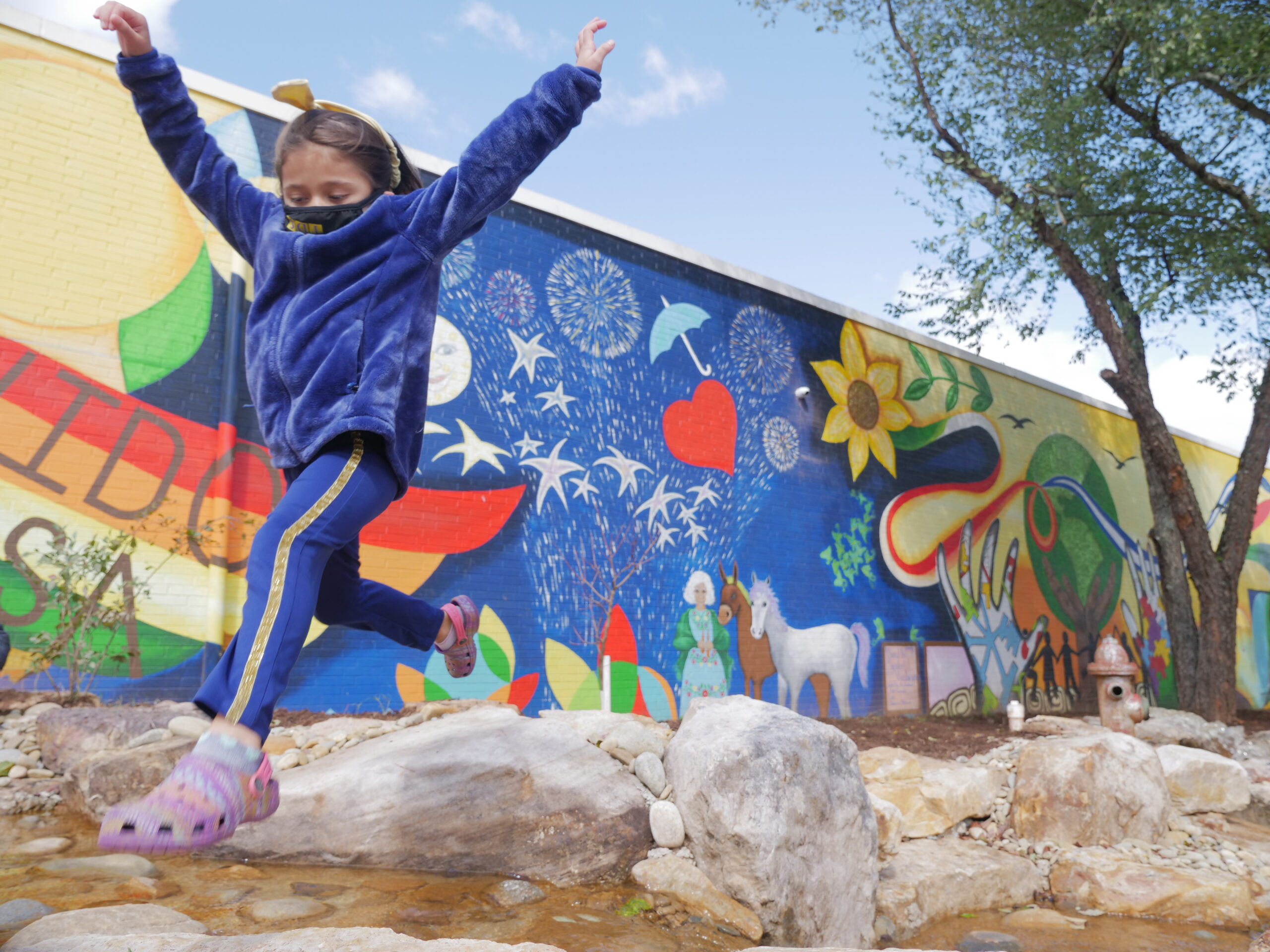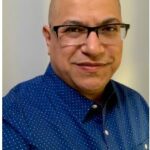We provide culturally-responsive mental health care and substance abuse treatments for Latino individuals and their families in an environment of healing and hope
Support Our Work
Get Help
Learn More
Professional Development
Resources
Handling Seasonal Depression with the Time Change
DURHAM, N.C. – A nonprofit’s new therapeutic garden aims to improve patients’ mental health during COVID-19 and the standard time change.
Supporting the future of El Futuro: Capacity Building Fund
El Futuro is a good example of why we see capacity-building support as an accompaniment to core support funding. As El Futuro has grown in space, staff and the people it serves, it has also been able to put in place external branding that matches its achievements. The core support funding gave El Futuro the confidence to sign a lease on a new space and hire a development director, both of which helped increase its capacity as an organisation. At the same time, the capacity building funds helped it to rebrand as part of the new communications strategy to enhance its work.
Mental health services for Latinos are in low supply, higher demand due to COVID-19
“It’s super important to have a therapist that you’re able to identify with, that you feel comfortable with, that comes from the same cultural background,” she said, “that speaks the same language as you.” But for years, Latinos have faced challenges in obtaining culturally competent mental health care. And the need is only growing during the pandemic, as practitioners across the country receive more referrals from patients within the Latinx community.
El Futuro offers hope and healing to Spanish speakers with mental health needs
Founded in 2001, El Futuro now serves the mental health needs of Latino families in Durham and Siler City in a bilingual environment of healing and hope.
Durham nonprofit brings tranquility to Spanish-speaking community during COVID-19
“The sounds of a flowing stream and happy kids fill the air in a most unlikely place – next to the parking lot in the Lakewood Shopping Center. El Futuro, a nonprofit mental health and substance use treatment clinic has created a new therapeutic garden complete with a recycling creek, brilliant mural and community garden.” Check out ABC 11’s article and video to learn about how we continue to help our community during the pandemic.
El Futuro featured in NC State article: communities addressing mental health challenges for post-pandemic success
In this article from NC State's Institute for Emerging Issues, El Futuro is featured as one of the six communities that discusses how they are actively working to address mental health challenges...
El Futuro provides direct services to clients, as well as training to help others provide more effective services.
Outpatient mental health services
Training and technical assistance
Community and rural support
Research and evaluation
La Mesita Latino Mental Health Provider Network
In our years of experience providing mental health and substance use services to Latino immigrant families, one thing has become clear to us — we need others in order to keep it up! We need community!
That’s why we’re building a network to connect people providing services to the Latino community. We call the network “La Mesita” to keep in focus that the network is like coming around a table to talk, share, and learn together.
Interested in joining? Read more here!



 Alvely Alcántara, LCSW
Alvely Alcántara, LCSW Rossy C. Garcia, MEd
Rossy C. Garcia, MEd  Katy Sims, MD
Katy Sims, MD  Everardo Aviles, LCSW, LCAS (Eve)
Everardo Aviles, LCSW, LCAS (Eve) As a medical anthropologist and social work researcher, Dr. Gulbas’ research embodies interdisciplinarity through the integration of applied theories of health and human development with qualitative and ethnographic methodologies. Her work seeks to understand how people—children, families, and providers—navigate complex sociocultural landscapes in the pursuit of mental health. Most of her work, to date, focuses attention on developing more robust interpretations of suicide risk. With funding from the National Institutes of Mental Health, this body of research has contributed to advancements in theoretical and empirical knowledge of the broader contexts within which youth suicide risk is situated.
As a medical anthropologist and social work researcher, Dr. Gulbas’ research embodies interdisciplinarity through the integration of applied theories of health and human development with qualitative and ethnographic methodologies. Her work seeks to understand how people—children, families, and providers—navigate complex sociocultural landscapes in the pursuit of mental health. Most of her work, to date, focuses attention on developing more robust interpretations of suicide risk. With funding from the National Institutes of Mental Health, this body of research has contributed to advancements in theoretical and empirical knowledge of the broader contexts within which youth suicide risk is situated.  R. Gabriela Barajas-Gonzalez is a developmental psychologist and an assistant professor of Population Health at NYU Grossman School of Medicine. Dr. Barajas-Gonzalez is the principal investigator of a study that examines the impact of immigration-related threat and stress on school communities. She earned a PhD in developmental psychology from Columbia University and hold a BA in human biology from Stanford University. Dr. Barajas-Gonzalez is the daughter of Mexican immigrants and a first gen college student.
R. Gabriela Barajas-Gonzalez is a developmental psychologist and an assistant professor of Population Health at NYU Grossman School of Medicine. Dr. Barajas-Gonzalez is the principal investigator of a study that examines the impact of immigration-related threat and stress on school communities. She earned a PhD in developmental psychology from Columbia University and hold a BA in human biology from Stanford University. Dr. Barajas-Gonzalez is the daughter of Mexican immigrants and a first gen college student. Dr. Parra-Cardona is an Associate Professor in the Steve Hicks School of Social Work (SHSSW) at the University of Texas at Austin. At the SHSSW, he serves as Coordinator for Mexico and Latin American initiatives. He also serves as Area Director for Research at the UT Austin Latino Research Institute. Dr. Parra-Cardona’s program of research is focused on the cultural adaptation of evidence-based parenting interventions for low-income Latinx populations in the US and Latin America.
Dr. Parra-Cardona is an Associate Professor in the Steve Hicks School of Social Work (SHSSW) at the University of Texas at Austin. At the SHSSW, he serves as Coordinator for Mexico and Latin American initiatives. He also serves as Area Director for Research at the UT Austin Latino Research Institute. Dr. Parra-Cardona’s program of research is focused on the cultural adaptation of evidence-based parenting interventions for low-income Latinx populations in the US and Latin America. Bianka Reese, PhD, MSPH is a research scientist and program evaluator specializing in adolescent and young adult sexual and reproductive health. Her previous research in the experiences of Latinx LGBTQ+ youth stems from her work as the Research and Evaluation Manager at SHIFT NC (Sexual Initiatives For Teens), where she led largescale evaluations of multilevel, community-based sexual health promotion initiatives and research projects aimed at elevating the voices of diverse youth in North Carolina. Dr. Reese is currently the Senior Research Strategist at Creative Research Solutions, LLC, an award-winning national evaluation, research, and assessment firm.
Bianka Reese, PhD, MSPH is a research scientist and program evaluator specializing in adolescent and young adult sexual and reproductive health. Her previous research in the experiences of Latinx LGBTQ+ youth stems from her work as the Research and Evaluation Manager at SHIFT NC (Sexual Initiatives For Teens), where she led largescale evaluations of multilevel, community-based sexual health promotion initiatives and research projects aimed at elevating the voices of diverse youth in North Carolina. Dr. Reese is currently the Senior Research Strategist at Creative Research Solutions, LLC, an award-winning national evaluation, research, and assessment firm. Tania Connaughton-Espino, MPH is an independent researcher focused on adolescent and young adult sexual and reproductive health. Her interest in the experiences of Latinx LGBTQ+ youth stems from her previous work with SHIFT NC (Sexual Initiatives For Teens), where she led the training and evaluation department, conducted capacity-building workshops for youth serving professionals including on the topic of how to be more affirming of LGBTQ youth, and from her extensive experience working with the Latinx population in NC.
Tania Connaughton-Espino, MPH is an independent researcher focused on adolescent and young adult sexual and reproductive health. Her interest in the experiences of Latinx LGBTQ+ youth stems from her previous work with SHIFT NC (Sexual Initiatives For Teens), where she led the training and evaluation department, conducted capacity-building workshops for youth serving professionals including on the topic of how to be more affirming of LGBTQ youth, and from her extensive experience working with the Latinx population in NC. Maru Gonzalez, EdD is an Assistant Professor and Youth Development Specialist in the Department of Agricultural and Human Sciences at North Carolina State University. Her areas of inquiry include youth development with a focus on activism, social justice, and the experiences of LGBTQ+ young people across familial, school, and community contexts.
Maru Gonzalez, EdD is an Assistant Professor and Youth Development Specialist in the Department of Agricultural and Human Sciences at North Carolina State University. Her areas of inquiry include youth development with a focus on activism, social justice, and the experiences of LGBTQ+ young people across familial, school, and community contexts.  Nayeli Y. Chavez-Dueñas, PhD
Nayeli Y. Chavez-Dueñas, PhD Hector Y. Adames, PsyD
Hector Y. Adames, PsyD